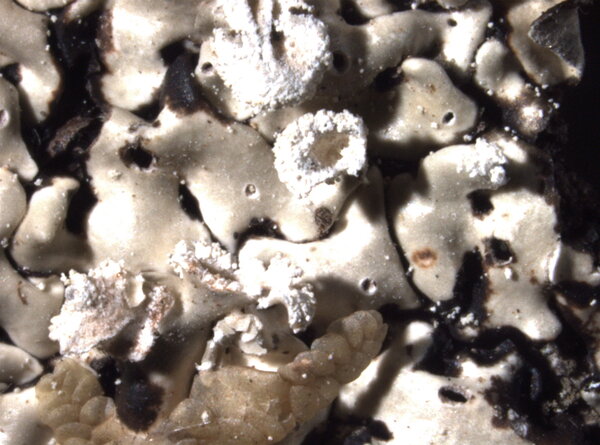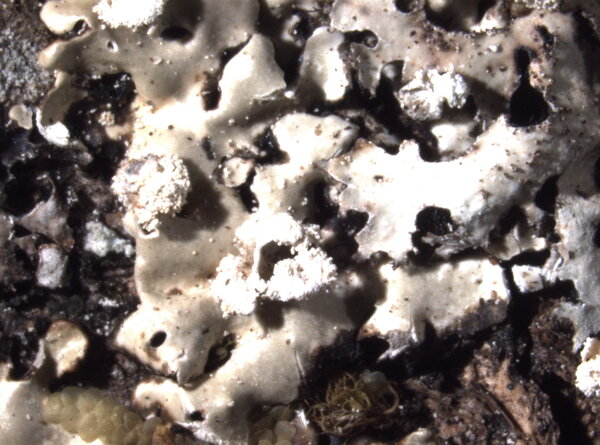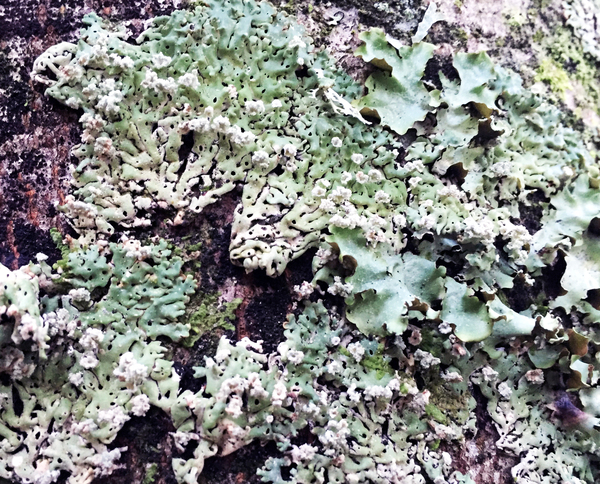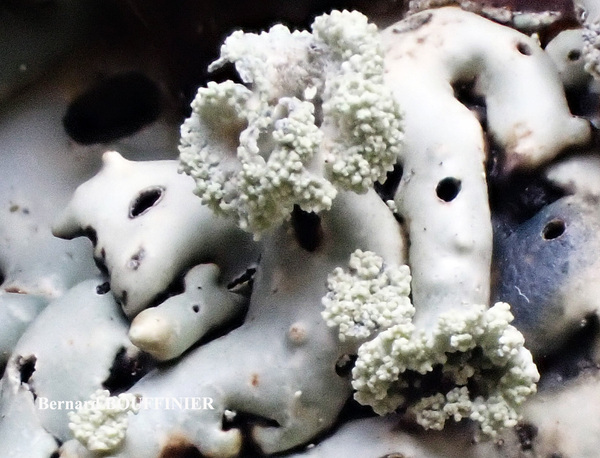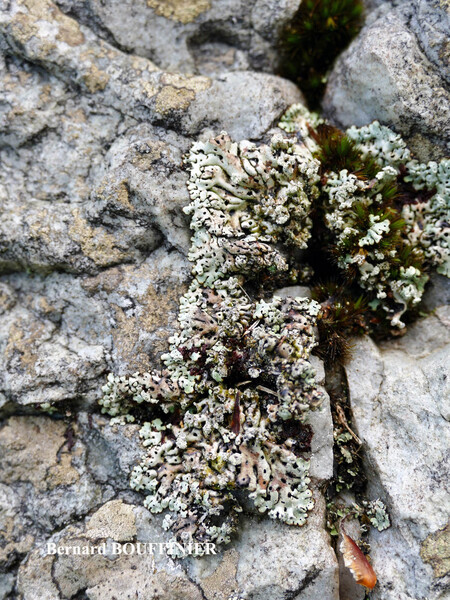Menegazzia subsimilis (H. Magn.) R. Sant.
Ark. Bot., 30A, 11: 13, 1942. Basionym: Parmelia subsimilis H. Magn. - Ark. Bot., 30B, 3: 5, 1941.
Synonyms: Menegazzia dissecta (Rass.) Hafellner; Menegazzia pertusa f. dissecta Rass.; Menegazzia terebrata var. dissecta (Rass.) Poelt
Distribution: N - Frl (Nimis & Pittao 2015).
Description: Thallus foliose, heteromerous, dorsiventral, forming up to 10 cm wide, regular rosettes, but often dying in central parts, the lobes closely adnate, to 1.5(-2.5) mm wide, rounded at apices, contiguous for much of their length, swollen and hollow inside, grey to greenish grey, often brownish at the ends and along margins, smooth and glossy, with round to oval, mostly <0.5 mm wide dark perforations, and whitish, ascending, dactyliform to funnel-like soralia with flange-like, lacerate margins, early showing a central opening into the medullary cavity. Lower surface black, wrinkled, erhizinate. Upper cortex paraplectenchymatous, the cell walls with isolichenan; medulla soon becoming hollow, lining the cavity inside the lobes; lower cortex dark, paraplectenchymatous. Apothecia extremely rare, lecanorine, 0.7-3 mm across, sessile to subpedicellate, with a brown disc and a usually sorediate thalline margin. Epithecium brown, non-granular; hymenium colourless, I+ blue; paraphyses richly branched and anastomosing; hypothecium colourless, of thick-walled, conglutinated hyphae. Asci 2-spored, Lecanora-type. Ascospores 1-celled, hyaline, ellipsoid, 36-44 x 17-22 µm, the wall wall 3-7 µm thick. Pycnidia very rare, black, immersed. Conidia c. 5 x 1 µm. Photobiont chlorococcoid. Spot tests: upper cortex K+ yellow, C-, KC-, P-; medulla K+ yellow, C-, KC-, P+ yellow-orange, UV-. Chemistry: upper cortex with atranorin, medulla with stictic, constictic, cryptostictic, menegazziaic acids, with or without low amounts of norstictic acid. Note: on bark in humid beech-fir forests, often with M. terebrata; the material of M. terebrata from Italy should be checked in search of this species.
Growth form: Foliose, broad lobed
Substrata: bark
Photobiont: green algae other than Trentepohlia
Reproductive strategy: mainly asexual, by soredia, or soredia-like structures (e.g. blastidia)
Most common in areas with a humid-warm climate (e.g. most of Tyrrenian Italy)
Commonnes-rarity: (info)
Alpine belt: absent
Subalpine belt: absent
Oromediterranean belt: absent
Montane belt: very rare
Submediterranean belt: absent
Padanian area: absent
Humid submediterranean belt: absent
Humid mediterranean belt: absent
Dry mediterranean belt: absent
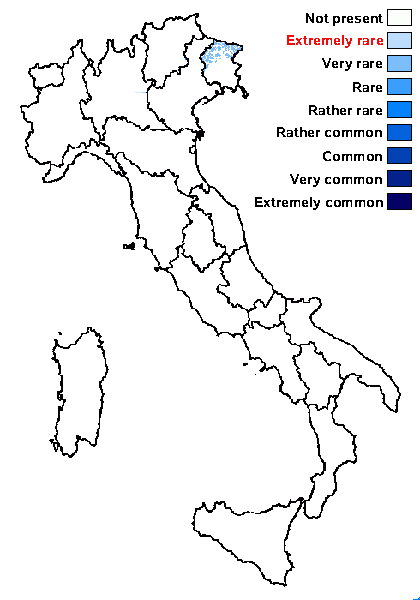
Predictive model
Herbarium samples
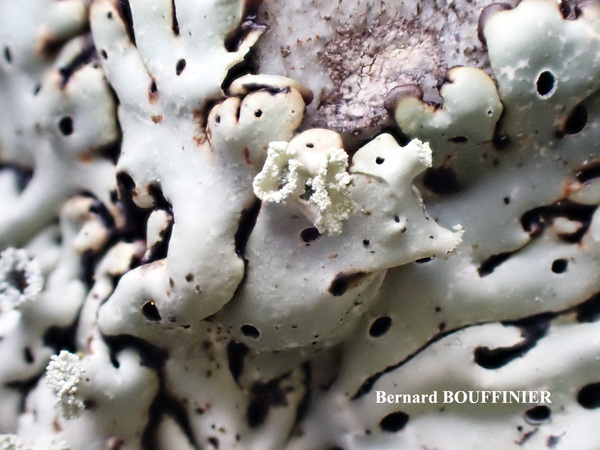
Bernard Bouffinier - Source: http://www.lichensmaritimes.org/index.php?task=fiche&lichen=1253&lang=en
France, Saint-Hernot
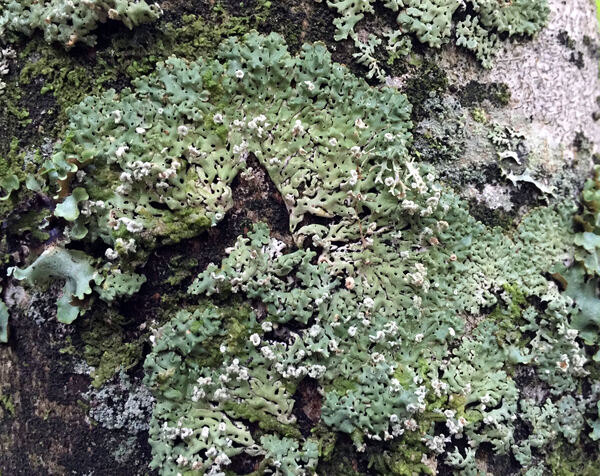

P.L. Nimis; Owner: Department of Life Sciences, University of Trieste
Italy, Friuli Venezia Giulia, Udine, Bosco della Stua, Lago di Sauris, 1000m
09.09.2016
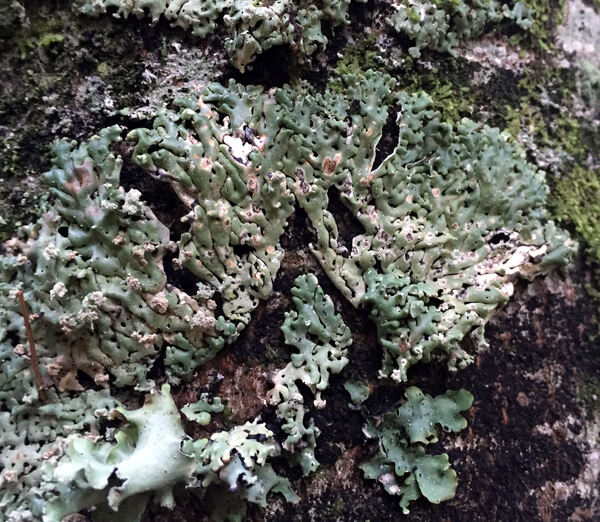

P.L. Nimis; Owner: Department of Life Sciences, University of Trieste
Italy, Friuli Venezia Giulia, Udine, Bosco della Stua, Lago di Sauris, 1000m
09.09.2016
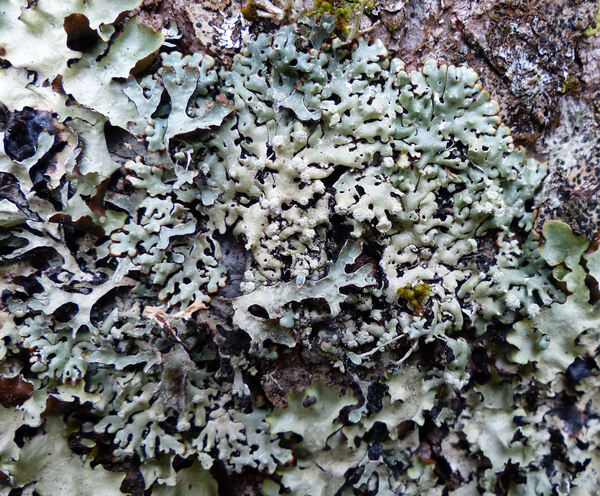

Andrea Moro; Owner: Department of Life Sciences, University of Trieste
Italy, Friuli Venezia Giulia, Udine, Lago di Sauris, Bosco della Stua, Carnic Alps (Ampezzo Carnico) 1000 m; altitude: 1000 m
12/08/2017
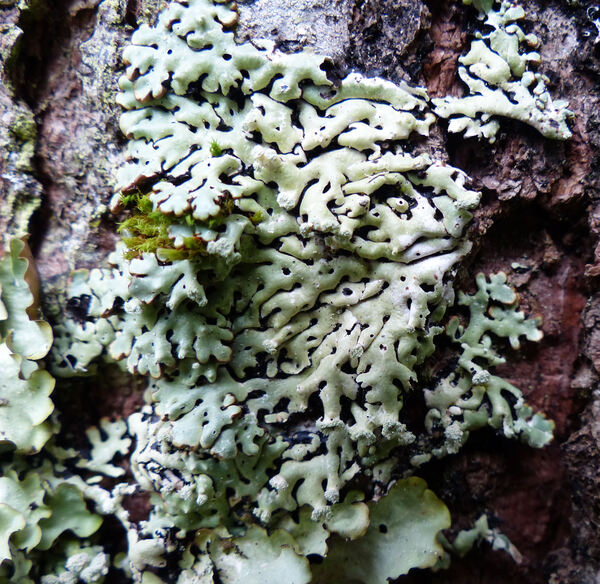

Andrea Moro; Owner: Department of Life Sciences, University of Trieste
Italy, Friuli Venezia Giulia, Udine, Lago di Sauris, Bosco della Stua, Carnic Alps (Ampezzo Carnico) 1000 m; altitude: 1000 m
12/08/2017
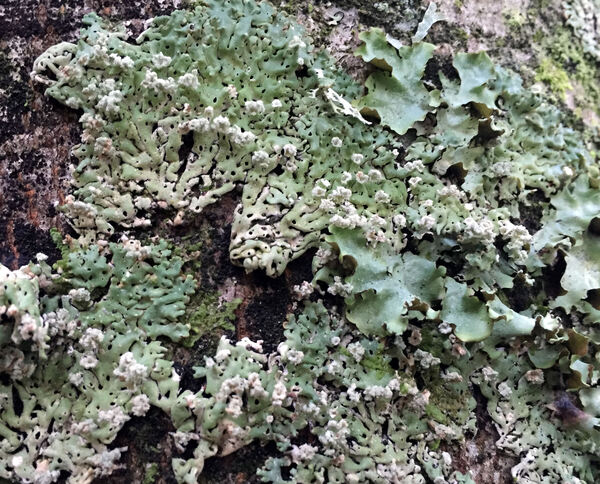

P.L. Nimis; Owner: Department of Life Sciences, University of Trieste
Italy, Friuli Venezia Giulia, Udine, Bosco della Stua, Lago di Sauris, 1000m
09.09.2016
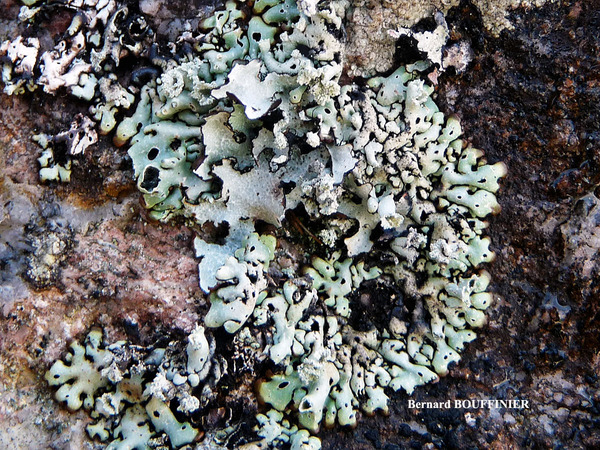
Bernard Bouffinier - Source: http://www.lichensmaritimes.org/index.php?task=fiche&lichen=1253&lang=en
France, Cap de la Chèvre
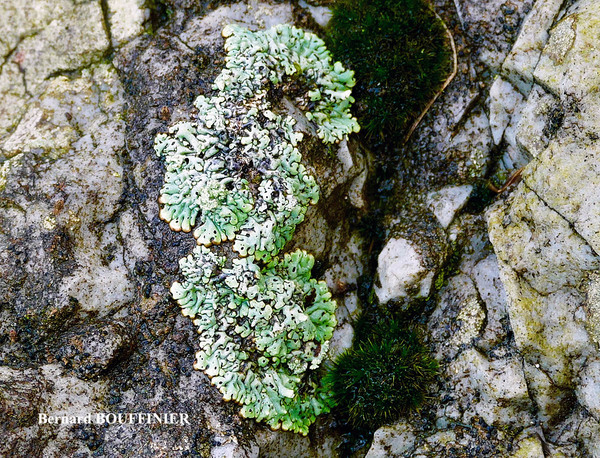
Bernard Bouffinier - Source: http://www.lichensmaritimes.org/index.php?task=fiche&lichen=1253&lang=en
France, Ile Vierge
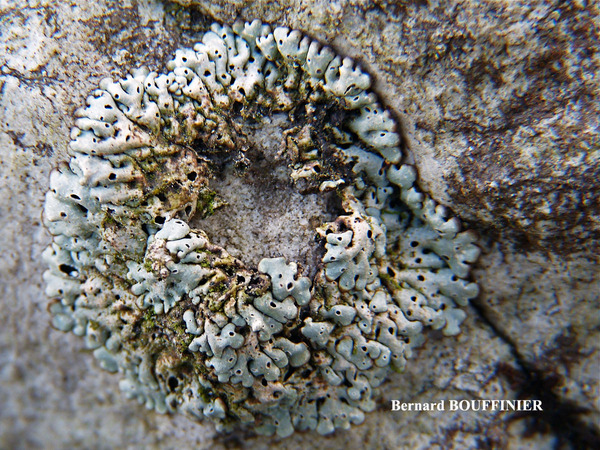
Bernard Bouffinier - Source: http://www.lichensmaritimes.org/index.php?task=fiche&lichen=1253&lang=en
France, Ile Vierge
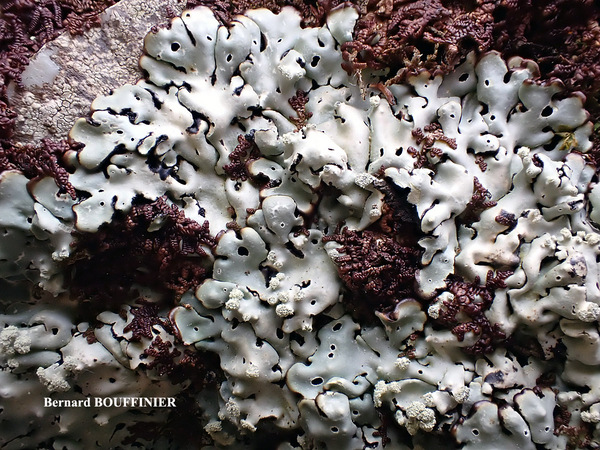
Bernard Bouffinier - Source: http://www.lichensmaritimes.org/index.php?task=fiche&lichen=1253&lang=en
France, Pointe du Guern
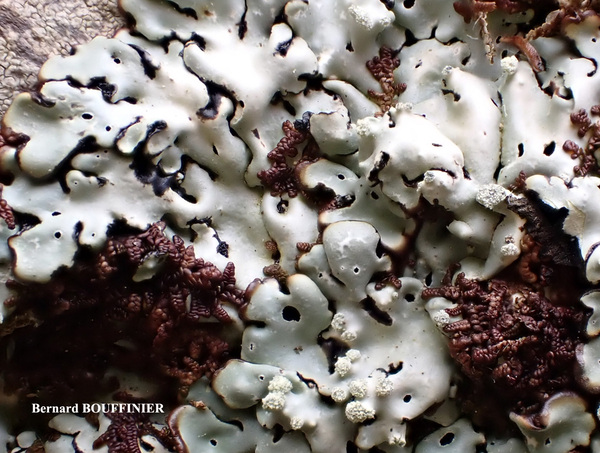
Bernard Bouffinier - Source: http://www.lichensmaritimes.org/index.php?task=fiche&lichen=1253&lang=en
France, Pointe du Guern
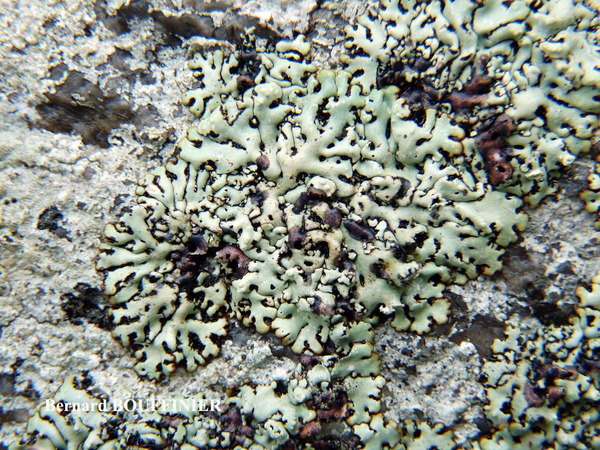
Bernard Bouffinier - Source: http://www.lichensmaritimes.org/index.php?task=fiche&lichen=1253&lang=en
France, Pointe du Van
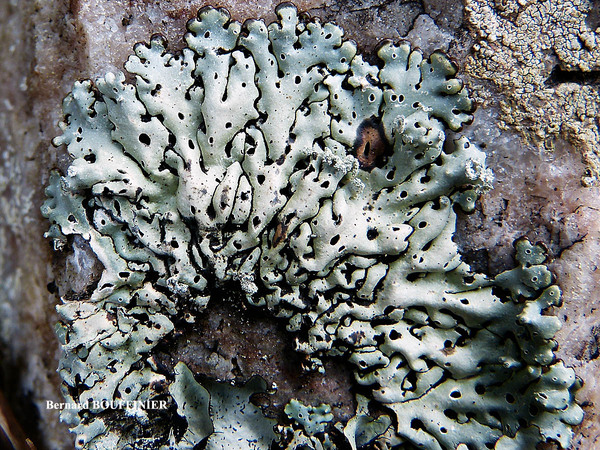
Bernard Bouffinier - Source: http://www.lichensmaritimes.org/index.php?task=fiche&lichen=1253&lang=en
France, Porz Kreguen
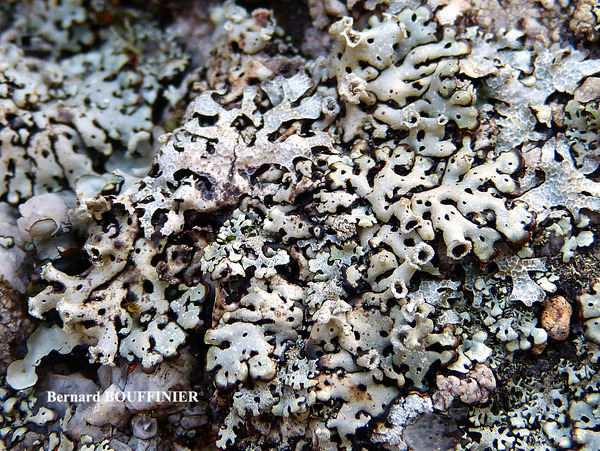
Bernard Bouffinier - Source: http://www.lichensmaritimes.org/index.php?task=fiche&lichen=1253&lang=en
France, Porz Kreguen
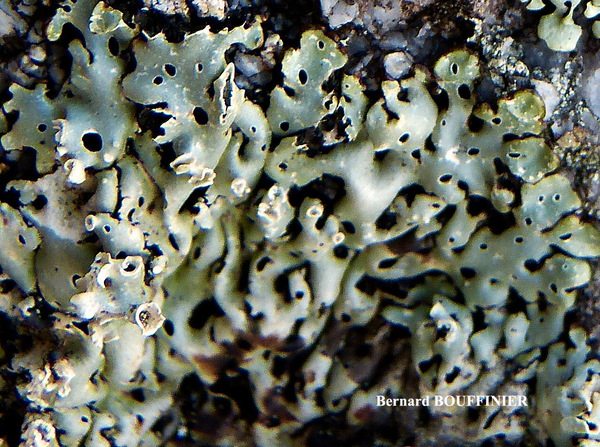
Bernard Bouffinier - Source: http://www.lichensmaritimes.org/index.php?task=fiche&lichen=1253&lang=en
France, Porz Kreguen
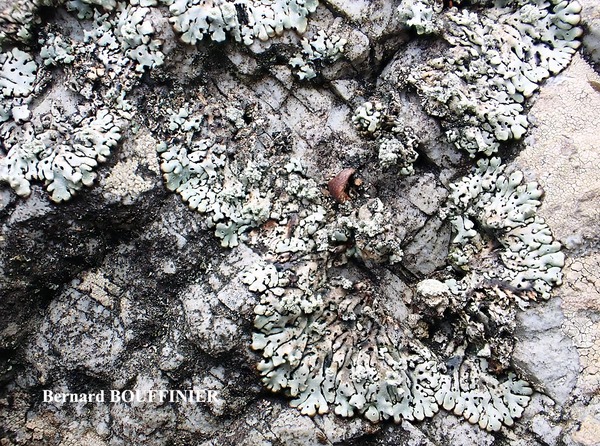
Bernard Bouffinier - Source: http://www.lichensmaritimes.org/index.php?task=fiche&lichen=1253&lang=en
France, Saint-Hernot
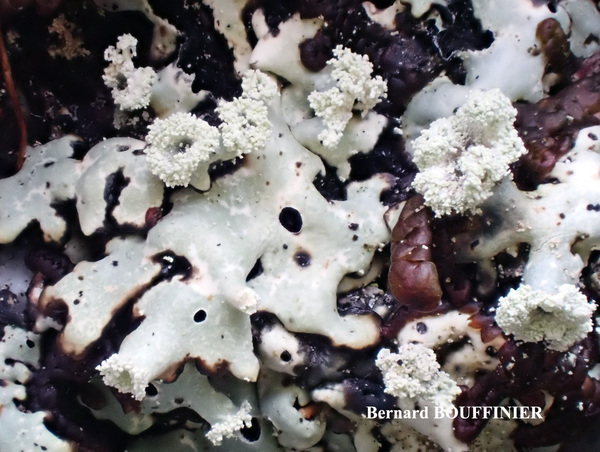
Bernard Bouffinier - Source: http://www.lichensmaritimes.org/index.php?task=fiche&lichen=1253&lang=en
France, Saint-Hernot
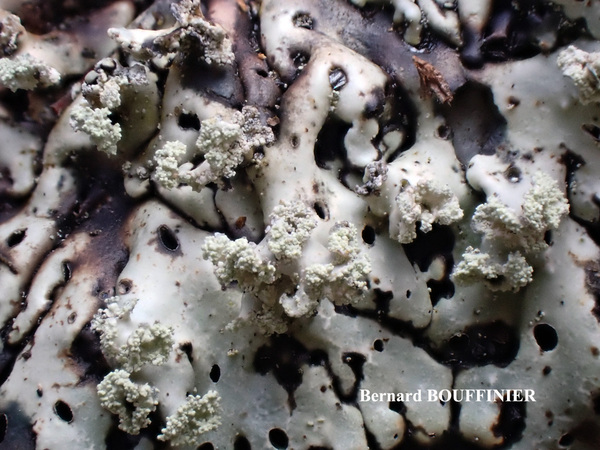
Bernard Bouffinier - Source: http://www.lichensmaritimes.org/index.php?task=fiche&lichen=1253&lang=en
France, Saint-Hernot
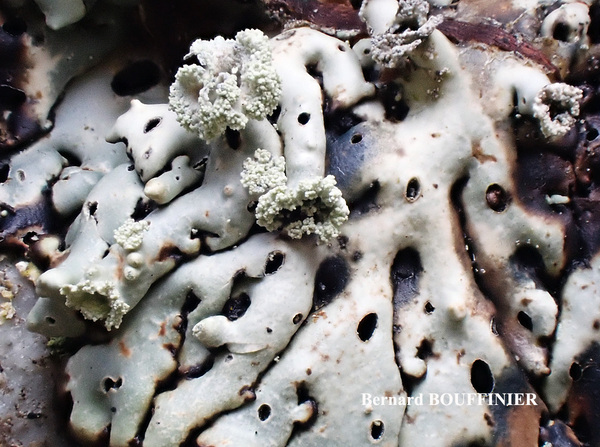
Bernard Bouffinier - Source: http://www.lichensmaritimes.org/index.php?task=fiche&lichen=1253&lang=en
France, Saint-Hernot
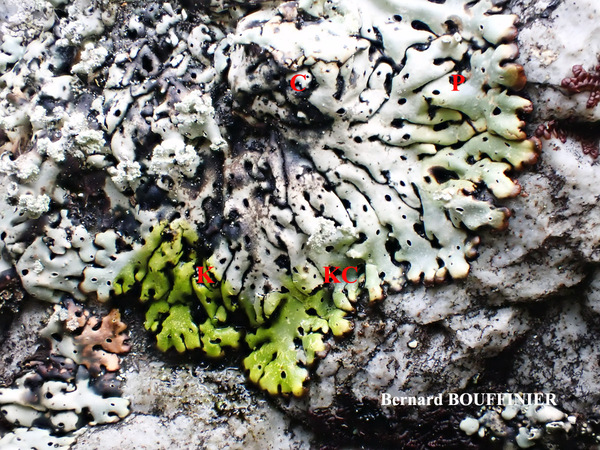
Bernard Bouffinier - Source: http://www.lichensmaritimes.org/index.php?task=fiche&lichen=1253&lang=en
France, Saint-Hernot
Growth form: Foliose, broad lobed
Substrata: bark
Photobiont: green algae other than Trentepohlia
Reproductive strategy: mainly asexual, by soredia, or soredia-like structures (e.g. blastidia)
Most common in areas with a humid-warm climate (e.g. most of Tyrrenian Italy)
Commonnes-rarity: (info)
Alpine belt: absent
Subalpine belt: absent
Oromediterranean belt: absent
Montane belt: very rare
Submediterranean belt: absent
Padanian area: absent
Humid submediterranean belt: absent
Humid mediterranean belt: absent
Dry mediterranean belt: absent

Predictive model
| Herbarium samples |

Bernard Bouffinier - Source: http://www.lichensmaritimes.org/index.php?task=fiche&lichen=1253&lang=en
France, Saint-Hernot


P.L. Nimis; Owner: Department of Life Sciences, University of Trieste
Italy, Friuli Venezia Giulia, Udine, Bosco della Stua, Lago di Sauris, 1000m
09.09.2016


P.L. Nimis; Owner: Department of Life Sciences, University of Trieste
Italy, Friuli Venezia Giulia, Udine, Bosco della Stua, Lago di Sauris, 1000m
09.09.2016


Andrea Moro; Owner: Department of Life Sciences, University of Trieste
Italy, Friuli Venezia Giulia, Udine, Lago di Sauris, Bosco della Stua, Carnic Alps (Ampezzo Carnico) 1000 m; altitude: 1000 m
12/08/2017


Andrea Moro; Owner: Department of Life Sciences, University of Trieste
Italy, Friuli Venezia Giulia, Udine, Lago di Sauris, Bosco della Stua, Carnic Alps (Ampezzo Carnico) 1000 m; altitude: 1000 m
12/08/2017


P.L. Nimis; Owner: Department of Life Sciences, University of Trieste
Italy, Friuli Venezia Giulia, Udine, Bosco della Stua, Lago di Sauris, 1000m
09.09.2016

Bernard Bouffinier - Source: http://www.lichensmaritimes.org/index.php?task=fiche&lichen=1253&lang=en
France, Cap de la Chèvre

Bernard Bouffinier - Source: http://www.lichensmaritimes.org/index.php?task=fiche&lichen=1253&lang=en
France, Ile Vierge

Bernard Bouffinier - Source: http://www.lichensmaritimes.org/index.php?task=fiche&lichen=1253&lang=en
France, Ile Vierge

Bernard Bouffinier - Source: http://www.lichensmaritimes.org/index.php?task=fiche&lichen=1253&lang=en
France, Pointe du Guern

Bernard Bouffinier - Source: http://www.lichensmaritimes.org/index.php?task=fiche&lichen=1253&lang=en
France, Pointe du Guern

Bernard Bouffinier - Source: http://www.lichensmaritimes.org/index.php?task=fiche&lichen=1253&lang=en
France, Pointe du Van

Bernard Bouffinier - Source: http://www.lichensmaritimes.org/index.php?task=fiche&lichen=1253&lang=en
France, Porz Kreguen

Bernard Bouffinier - Source: http://www.lichensmaritimes.org/index.php?task=fiche&lichen=1253&lang=en
France, Porz Kreguen

Bernard Bouffinier - Source: http://www.lichensmaritimes.org/index.php?task=fiche&lichen=1253&lang=en
France, Porz Kreguen

Bernard Bouffinier - Source: http://www.lichensmaritimes.org/index.php?task=fiche&lichen=1253&lang=en
France, Saint-Hernot

Bernard Bouffinier - Source: http://www.lichensmaritimes.org/index.php?task=fiche&lichen=1253&lang=en
France, Saint-Hernot

Bernard Bouffinier - Source: http://www.lichensmaritimes.org/index.php?task=fiche&lichen=1253&lang=en
France, Saint-Hernot

Bernard Bouffinier - Source: http://www.lichensmaritimes.org/index.php?task=fiche&lichen=1253&lang=en
France, Saint-Hernot

 INDEX FUNGORUM
INDEX FUNGORUM
 GBIF
GBIF
 DOLICHENS
DOLICHENS
